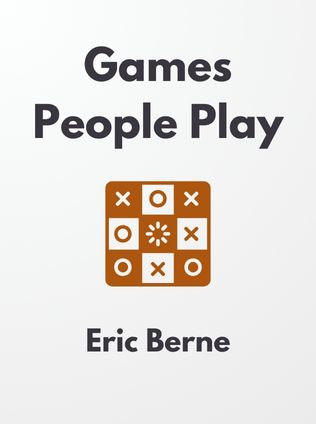
Games People Play
By Eric Berne
Published 01/1964
About the Author: Dr. Eric Berne
Dr. Eric Berne, a pioneering psychiatrist, is best known for developing Transactional Analysis (T.A.), a system of social psychology that revolutionized the way we understand human interaction. Born in 1910 in Montreal, Canada, Berne pursued a medical degree and subsequently trained as a psychoanalyst. After fifteen years immersed in Freudian theory, Berne broke away to develop his own ideas, focusing on the dynamics of social interaction rather than the deep, often inaccessible unconscious explored by Freud.
His 1964 book, Games People Play, became an instant classic, introducing the world to the concept of psychological games and how they shape our relationships. Berne’s work offers a lens through which to view the everyday interactions that often pass unnoticed, illuminating the unconscious games we play and how they affect our lives. Although he passed away in 1970, Berne’s legacy lives on, influencing both clinical psychology and popular self-help literature.
Main Idea: Understanding the Games We Play
At the heart of Games People Play is the idea that much of our social behavior is governed by unconscious psychological games. These games are patterns of behavior, often rooted in early life experiences, that we repeat in our interactions with others. While some games can be benign, many are destructive, leading to conflict, dissatisfaction, and emotional harm. Berne’s work helps us recognize these games, understand their origins, and offers a path to transcending them, moving towards healthier, more fulfilling relationships.
Table of Contents
- A Crash Course in Transactional Analysis
- The Origins of Our Social Games
- Understanding Ego States
- How Games Develop and Persist
- Common Psychological Games
- Identifying and Overcoming Your Games
- Moving Beyond Games: Achieving Autonomy
A Crash Course in Transactional Analysis
Transactional Analysis begins with the idea that human beings have a fundamental need for recognition, which Berne refers to as “stroking.” This need for social acknowledgment is so strong that, in its absence, our mental and emotional health can deteriorate. Berne illustrates this with studies showing that individuals in solitary confinement, deprived of social interaction, often develop psychoses. This underscores the necessity of social contact for maintaining psychological well-being.
Berne further breaks down social interaction into what he calls “transactions,” or discrete exchanges between individuals. These transactions are the building blocks of all social interactions, and by analyzing them, we can begin to uncover the unconscious motivations that drive our behavior.
For Berne, every interaction can be seen as a transaction between two people. These transactions are composed of three ego states: Parent, Adult, and Child. The Parent ego state reflects the authority figures and teachings from our childhood, the Adult ego state represents our rational and objective thought processes, and the Child ego state encompasses our emotions, creativity, and spontaneity. Understanding which of these ego states is dominant in any interaction can help us identify the nature of the transaction and whether a psychological game is being played.
The Origins of Our Social Games
Our social games originate in early childhood, where significant life experiences shape our core beliefs about the world. For example, a child who is consistently bullied may develop a belief that the world is a hostile place, leading them to engage in defensive or aggressive games in adulthood. These early experiences lay the foundation for the unconscious games we play, as they establish the beliefs and stances we take in our interactions with others.
These games are often passed down through generations, as children learn from their parents’ behaviors and attitudes. For instance, a parent who uses anger to assert control may inadvertently teach their child to use the same tactic, perpetuating a cycle of destructive games. This transgenerational transmission of games is a key concept in Berne’s theory, as it explains how certain dysfunctional patterns persist within families and social groups over time.
Berne’s work also emphasizes the role of social and cultural factors in shaping the games we play. The expectations, norms, and values of the society we live in can influence the types of games we engage in and how we play them. For example, a society that values competition and individual achievement may foster games that involve one-upmanship, rivalry, and power struggles. In contrast, a society that emphasizes cooperation and collectivism may encourage games that focus on maintaining harmony and avoiding conflict.
Understanding the origins of our social games is crucial for personal growth, as it allows us to identify the root causes of our dysfunctional behaviors and take steps to change them. By recognizing the influence of our early experiences, family dynamics, and social environment, we can begin to break free from the games that hold us back and develop healthier, more authentic ways of relating to others.
Understanding Ego States
Berne introduces the concept of ego states to explain the different aspects of our personality that come into play during social interactions. He identifies three primary ego states:
Sign up for FREE and get access to 1,400+ books summaries.
You May Also Like
The Subtle Art of Not Giving a F*ck
A Counterintuitive Approach to Living a Good Life
By Mark MansonRich Dad Poor Dad
What the Rich Teach Their Kids About Money - That the Poor and Middle Class Do Not!
By Robert T. KiyosakiHow To Win Friends and Influence People
The All-Time Classic Manual Of People Skills
By Dale CarnegieFreakonomics
A Rogue Economist Explores the Hidden Side of Everything
By Steven D. Levitt and Stephen J. Dubner



















